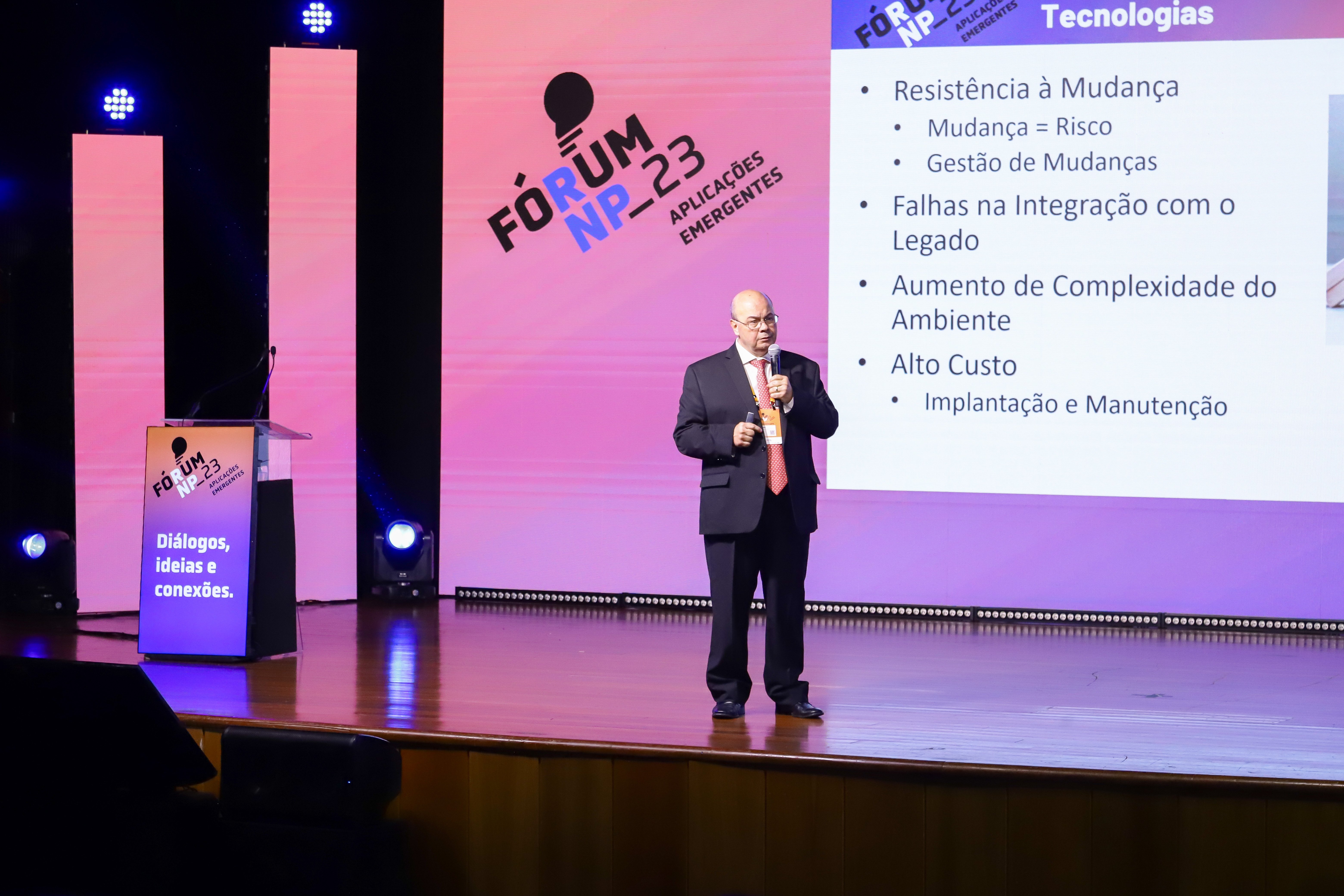‘Do not acquire new technologies without careful evaluation’, warns keynote at the RNP Forum
João Souza Neto explained how organizations should prepare to adopt innovation
How to adopt new technologies safely and with controlled risks? What are the main issues to take into account in the process? How to balance the advantages and risks? These and other issues were addressed on the second day of the RNP Forum by keynote speaker João Souza Neto, president of the Brasília Chapter of ISACA. He detailed processes to be taken into account and issued a warning: “We need to be very aware of the uncertainties to be faced”.
Based on a consultation with a rural producer who intended to buy drones to use on his plantation, Souza listed ten questions that every manager should ask before hiring a new technology - adapting to each case.
1 - Do you know the costs of implementing and operating a drone solution?
2 - Do you know the costs of preventive maintenance?
3 - Have you assessed the compatibility of the drone solution with your IT environment?
4 - Have you assessed how the drone solution impacts your environment?
5 - Have you assessed the issue of technological lock-in?
6 - Is the drone supplier compliant with legislation?
7 - Did you ask the supplier about data ownership?
8 - Have you assessed how security and management of drone data and images will be carried out?
9 - Do you have a hardware and software infrastructure to evaluate the data?
10 - Did you evaluate the pilot training costs?
He recommends: if you haven't answered YES to at least seven of the questions, don't buy the new technology yet.
According to Souza, suppliers are convincing, and professionals feel pressured by competitors. You need to avoid acting on impulse. “Fight the excitement. Do not acquire new technologies without a careful assessment of key aspects”. But he also warned that uncertainties can lead to serious problems, such as increased costs and complexity, systems integration, creation of “technological lock-in” and team resistance.
Another aspect to take into account is the possibility of becoming dependent on technology that is owned by another company. “Another risk is dependence on suppliers, which brings about the problem of proprietary technology, which is precisely technological lock-in. You are stuck with that supplier. That's what happens with cloud computing. Changing providers is a complex process”, reported Souza Neto.
Hackers do Bem
Earlier, Arena I was the stage for a debate on one of RNP's main projects, Hackers do Bem. The initiative promises to revolutionize the cybersecurity scenario in Brazil, training up to 40 thousand professionals from 2024. For Iara Machado, director of Research, Innovation and Development at RNP, one word defines the program: transformation.
Iara presented the three pillars of Hackers do Bem: HR training in cybersecurity and privacy; the technological development of tools for the sector; and the creation of a cybersecurity innovation hub. At the center is the governance of RNP together with partners in the initiative, such as Softex and Senai. “More than qualifying professionals, the project aims to change this current cybersecurity scenario”, stated the director.
According to RNP's deputy director of cybersecurity, Emílio Nakamura, there is a shortage of 3.5 million professionals for the sector in the world. In Brazil alone, 350 thousand vacancies are not filled due to the shortage of qualified labor. “When I started working, one person was responsible for ensuring the entire security of an environment. Today, we have to have a professional for network security, another for ethical hacking, a third to implement controls, another for access control... This scope of security needs contributes to the shortage of professionals”, explained Nakamura.

Leandro Guimarães, deputy director of Escola Superior de Redes (ESR), said that the School is innovating in teaching solutions, adapting the language, investing in gamification and other strategies to adapt to younger students, high school graduates.
Lisandro Granville, deputy director of Research, Development and Innovation celebrated the results of the first public call for Hackers do Bem, which received a large number of proposals to develop new products for cybersecurity training.
